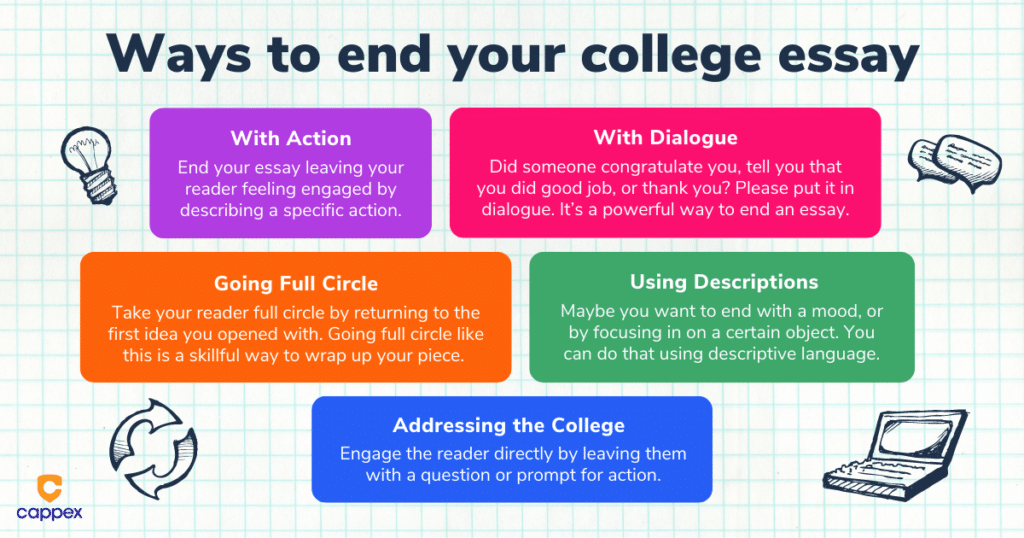The conclusion paragraph in a medical school admissions essay is a critical component that ties together all the key points made in the personal statement. While some essays naturally conclude within the final body paragraph, others may feel incomplete without a dedicated conclusion. A well-crafted conclusion reinforces the central theme, provides closure, and leaves a lasting impression on the admissions committee, demonstrating your readiness for medical school.
By following these guidelines, applicants can create a well-structured, impactful conclusion that enhances their medical school admissions essay and improves their chances of standing out to admissions committees.
When Should You Include a Conclusion Paragraph?
Not every medical school admissions essay requires a separate conclusion paragraph. If the final body paragraph wraps up the discussion naturally, adding an extra conclusion may seem redundant. However, if the essay ends too abruptly, a conclusion paragraph becomes necessary to provide a sense of closure. Reviewing the essay carefully can help determine whether a conclusion is needed. Seeking feedback from a neutral third party, such as a mentor or advisor, can also be beneficial in making this decision.
How to Structure an Effective Conclusion Paragraph
Reaffirm Your Theme Without Repetition
The conclusion should reinforce the essay’s central theme without merely restating previous points. Admissions committees appreciate fresh insights rather than a simple summary. Instead of using phrases like “in summary” or “to conclude,” focus on presenting a concise and impactful closing statement that highlights how your experiences and qualities will contribute to your success as a medical student and future physician. Reiterate key characteristics that align with the values of medical schools, such as empathy, perseverance, leadership, and a commitment to lifelong learning.
Avoid Introducing New Information
Some applicants are tempted to introduce new ideas or additional supporting evidence in the conclusion. However, this approach can weaken the essay’s impact by making it feel disorganized. If new points need to be addressed, they should be incorporated into the body paragraphs rather than introduced in the conclusion. The final paragraph should focus on solidifying the message you have already established.
Demonstrate Readiness for Medical School
The conclusion is the final opportunity to persuade the admissions committee that you are a strong candidate. Emphasize how your experiences, skills, and personal qualities align with the demands of medical school and the medical profession. Highlight your commitment, resilience, and passion for medicine while maintaining a confident yet humble tone. Showcase how your journey, challenges, and achievements have shaped you into a prepared and motivated medical school applicant.
Common Mistakes to Avoid in the Conclusion Paragraph
- Over-Summarizing Previous Content – A conclusion should not be a mere repetition of what has already been discussed. Instead, it should provide a fresh perspective on how your experiences make you a suitable candidate for medical school.
- Using Generic Phrases – Avoid cliches such as “in conclusion” or “as I have shown.” Instead, craft a natural and compelling closing statement that leaves a lasting impression.
- Lack of Cohesion – Ensure that the conclusion seamlessly connects with the rest of the essay. A disjointed ending can weaken the overall impact of your statement.
- Failing to Leave a Strong Impression – Admissions committees read thousands of essays. A well-crafted conclusion can differentiate your application by showcasing a compelling final message about your qualifications and aspirations.
- Introducing New Topics – The conclusion should not contain new arguments or examples. If you discover new ideas that need to be included, revise earlier paragraphs instead.
Final Thoughts
A strong conclusion paragraph in a medical school admissions essay reinforces the central theme, provides closure, and leaves a lasting impact on the admissions committee. While not always necessary, a well-written conclusion can enhance the overall effectiveness of the personal statement. By reaffirming key qualities, maintaining clarity, and avoiding common pitfalls, applicants can craft a compelling final paragraph that strengthens their application. Medical school admissions committees seek candidates who demonstrate self-awareness, dedication, and the ability to articulate their motivations effectively. Your conclusion should reflect these attributes while ensuring a natural and engaging close to your essay.
Frequently Asked Questions
1. Should my conclusion introduce new ideas?
No, the conclusion should only reinforce key themes already discussed in the essay without introducing new information. Adding new ideas in the conclusion can disrupt the flow and make the essay seem incomplete or disorganized.
2. How long should the conclusion paragraph be?
A conclusion should be concise, typically around 3-5 sentences. It should provide closure without unnecessary repetition or excessive detail.
3. What is the best way to make my conclusion stand out?
Focus on presenting a compelling final thought that highlights your qualifications, passion for medicine, and readiness for medical school. Consider ending with a powerful statement that reflects your commitment and aspirations.
4. Can I skip the conclusion if my last body paragraph already provides closure?
Yes, if the essay naturally concludes within the final body paragraph, an additional conclusion may not be necessary. However, ensure that the ending does not feel abrupt or incomplete.

